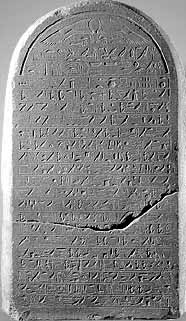From an online encyclopedia:
Like his father, Senusret II's reign is considered to be a peaceful one, using more diplomacy with neighbors then warfare. We are told that trade with the Near East was particularly prolific. His cordial relations with the regional leaders in Egypt is attested to at Beni Hassan, for example, and especially in the tomb of Khnumhotep II, who he gave many honors.
There sem to be no recorded no military campaigns during his rule, though he undoubted protected Egypt's mineral interests and their expanded territory in Nubia.

A Stele of Senusret II in Brown Quartzite
His efforts seem to have been more directed at expanding cultivation within the Fayoum rather then making war with his neighbors and regional nobles.
In the Fayoum, his projects turned a considerable area from marshlands into agricultural land. He established a Fayoum irrigation project, including building a dyke and digging canals to connect the Fayoum with a waterway known today as Bahr Yusef.
He seems to have had a great interest in the Fayoum, and elevated the region in importance. Its growing recognition is attested to by a number of pyramids built before, and after his reign in or near the oasis (though the Fayoum is not a true oasis). It should also be remembered that kings usually built their royal palaces near their mortuary complexes, so it is likely that many of the future kings made their home in the Fayoum.
Its hardly evidence of the historicity of the Joseph story that the modern Arabs have named the canal after one of their favorite Koran characters.
